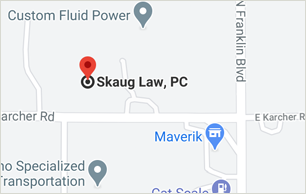Maximize Your Cycling Claim: Tips for Securing Fair Compensation After a Bike Accident
Last updated Monday, April 1st, 2024

Dealing with a cycling claim post-accident? This article delivers straight-to-the-point guidance for asserting your rights and obtaining just compensation from insurance companies.
Key Takeaways
- A thorough understanding of your rights, the role of negligence and insurance policy intricacies, and seeking legal counsel are crucial first steps in securing fair compensation after a bicycle accident.
- Prompt evidence gathering, accurate documentation, and strategic communication with insurance adjusters are fundamental actions in strengthening your bicycle accident claim.
- Evaluating all damages incurred, including current and future medical expenses, lost wages, pain and suffering, with the guidance of a bicycle accident lawyer, is key to obtaining a comprehensive settlement.
Have You Been Injured in a Bicycle Accident?
Get Your Free Injury Case Review
Hire an experienced Idaho bicycle accident lawyer that knows what needs to be done. The minute you sign with Skaug Law – we start working.
Understanding Your Rights in a Bicycle Accident Claim
When the unexpected happens and you find yourself the victim of a bicycle accident, a cascade of questions floods your mind. Who is at fault? What are my rights? How can I recover damages for my injuries and bike? The path to a fair bicycle accident claim begins with a clear grasp of your legal entitlements. Whether it’s navigating the complexities of insurance policies or considering the prospect of a civil lawsuit, understanding your rights is the first crucial pedal stroke towards claiming what is justly yours.
The importance of consulting a knowledgeable bicycle accident lawyer cannot be overstated. Such legal professionals are adept at decoding local laws, proving fault, and determining the compensation you’re entitled to pursue. With their guidance, you can ensure that your personal injury claim encompasses not only medical expenses and lost wages but also the often-overlooked non-economic losses like pain and suffering.
Now, let’s delve deeper into the legal mechanics of negligence and insurance intricacies that underpin your bicycle accident case.
The Role of Negligence in Cycling Claims
Proving negligence is akin to finding the missing piece in a puzzle that completes the picture of your bicycle accident claim. It’s about demonstrating that the responsible party’s lapse in judgment or failure to adhere to traffic rules was the direct cause of your misfortune. Distractions, reckless driving, and even poorly maintained roads can all contribute to a bike accident where negligence plays a starring role.
However, the plot can thicken if you, as the cyclist, didn’t strictly follow the traffic laws, or in cases like a dog attack, where the liability may fall on the dog owner. Understanding the varying degrees of fault is vital for a successful personal injury claim, and it highlights the importance of detailed evidence to link the negligence directly to your injuries.
With negligence established, let’s navigate the often murky waters of insurance coverage and policy limits.
Insurance Coverage and Policy Limits
Imagine insurance coverage as a safety net that, unfortunately, has its holes. While Personal Injury Protection (PIP) may cover a certain amount of medical expenses and documented costs, it’s restricted to economic damages, leaving the broader spectrum of your losses potentially unprotected. It’s a stark reminder that the compensation you receive is not just about what’s covered, but also about the limits set by policy coverage.
Moreover, dealing with insurance companies, including the other party’s insurance company, can be a test of patience and resolve. They are obligated to adjust and settle claims fairly and promptly, but be aware that they may not always play by the rules. This is where knowing the limitations of your policy and the insurance company’s responsibilities becomes a powerful tool in your personal injury claim arsenal. With this understanding, you’re ready to initiate your bicycle accident insurance claim, a step that requires precision and care.
Initiating a Cycling Accident Insurance Claim
The moment following a bicycle accident is a race against time to gather evidence and document every detail. It’s a meticulous process that involves collecting contact and insurance information of all involved parties, seeking immediate medical attention, and filing a police report. This critical evidence serves as the foundation of your claim, especially since insurance companies are known to challenge the causation of injuries, often attributing them to pre-existing conditions or other unrelated causes.
Personal Injury Protection (PIP) insurance, a form of health insurance, can be a beacon of hope, potentially covering medical bills and other expenses resulting from the accident. However, be prepared for the possibility of insurance companies attempting to deny coverage or offer minimal compensation. It is thus essential to approach the claim insurance filing process with a structured and informed strategy. As you contact the insurance company, remember that the strength of your claim lies in the details.
Contacting the Insurance Company
When the dust settles after a bike accident, you may find the insurance company reaching out to you with haste, sometimes even before you’ve left the hospital. The insurance adjuster will embark on their duty to investigate the claim, but it’s crucial to approach these communications with a strategic mindset. They might seem friendly, but remember, their goal is to minimize the company’s payout, which means you need to be cautious with the information you provide.

- Obtain the adjuster’s contact information and the claim number
- Take notes during your conversations
- Limit the details you share
- Avoid discussing fault or the extent of your injuries
- Never admit fault
These conversations could be used against you in your claim, so it’s best to be cautious and only provide necessary information.
If they request a recorded statement, it’s wise to consult an attorney first, as these recordings can be pivotal in the claim process. An attorney can also take over communications, ensuring your rights are protected. With the insurance company informed, it’s time to focus on the cornerstone of your claim: impeccable documentation.
Documentation Is Key
The adage ‘the devil is in the details’ rings especially true when it comes to documenting your bicycle accident. From the very start, gathering information from all parties and witnesses is crucial as it forms the bedrock of your claim. To fortify your position during negotiations, meticulously organize and copy all pertinent documents, including:
- Medical bills
- Repair estimates
- Police reports
- Witness statements
The absence of solid evidence can lead to denied insurance claims, underscoring the significance of comprehensive documentation. It is the evidence you collect that will speak volumes, proving the liability of the party caused your accident and the extent of your damages. With a well-documented case in hand, you’re now ready to evaluate all damages sustained in the bike accident—because full compensation is about much more than just the upfront costs.
Evaluating All Damages Sustained in a Bike Accident
A bicycle accident can leave a trail of damages in its wake, including:
- Immediate medical bills
- Property damage
- Lingering pain and suffering
- Potential future medical costs
To ensure you’re not left footing the bill for an accident you didn’t cause, it’s crucial to evaluate all damages sustained thoroughly. This evaluation is not just about tallying up receipts; it’s about envisioning the long-term impacts of your injuries and the changes they may bring to your life and livelihood.
A bicycle accident lawyer can be your ally in this process, expertly calculating both economic and non-economic damages to help you claim the full compensation you deserve,. They will guide you in considering every cost—from the tangibles like medical bills to the intangibles like emotional distress. Let’s break down these damages, beginning with the often substantial medical expenses.
Calculating Medical Expenses
In the aftermath of a bicycle accident, your health is your priority, and the medical expenses you incur are a significant component of your claim. You must consider all costs for medical treatment, including prescription medications, physical therapy, and rehabilitation. However, the financial toll of the accident doesn’t stop with the initial medical bills; you must also consider the shadow of future medical expenses that may loom over you.
The long-term physical effects of your injuries, such as the need for ongoing surgery or medication, illustrate the critical importance of including all ongoing medical treatment and future medical bills in your claim. This foresight ensures that you won’t be burdened by unforeseen medical costs down the road.
With medical expenses accounted for, we turn our attention to the impact of the accident on your ability to work—a factor that can significantly alter the course of your financial future.
Estimating Lost Wages and Earning Potential
The ripple effects of a bike accident often extend beyond immediate injuries, disrupting your ability to earn a living. Lost wages can be quantified and claimed, and this is where evidence like pay stubs, tax returns, and employer statements become invaluable. But what of the future? If your injuries lead to permanent disabilities or impairments, it’s essential to evaluate the loss of earning capacity, which represents the long-term impact on your professional life and income.
Consider also the lifestyle modifications that may result from your injuries. Extended time off work, inability to engage in previous activities, or a necessary career change—all of these factors must be reflected in your compensation for lost earnings. This comprehensive view ensures that the settlement reflects not just the cost of today’s missed work but the potential financial losses of tomorrow.
Next, we explore the more elusive but equally important damages for pain and suffering.
Assessing Pain and Suffering

Medical experts may be called upon to discuss the long-term impact of injuries, which can include conditions like depression, anxiety, or PTSD. These psychological effects can hinder social engagement and mental well-being and, in cases of severe head trauma, may even impede earning capacity.
With a comprehensive assessment of all damages, it becomes clear why legal support is not just helpful, but imperative, in navigating a bicycle accident claim.
Legal Support: Partner with a Bicycle Accident Lawyer
Navigating a bicycle accident claim without legal support is like riding into a storm unprepared. Lawyers specializing in bicycle accidents bring a wealth of expertise and knowledge of the legal system, helping victims to navigate the complex processes that follow an accident. Their experience is invaluable, especially when insurance companies, known for their tactics to minimize payouts, enter the fray.
Bicycle accident attorneys have a financial incentive to resolve your case successfully, as they often work on a contingency fee basis. This means they are paid only if you win, aligning their interests with yours for a fair settlement. It is recommended to reach out to an attorney immediately post-accident, ensuring that you don’t fall into traps set by insurance companies during initial communications about the accident or your injuries. Let’s delve into why expert legal guidance is not just beneficial but crucial in these cases.
Why Expert Legal Guidance Matters
The journey to a fair settlement is fraught with challenges and complexities that only expert legal guidance can navigate. Insurance companies may come forward with quick settlement offers that seem attractive but often fall short of fully compensating the victim for their losses. Attorneys work on a contingency basis, which means their remuneration is tied directly to the success of your case—this ensures a high level of commitment and a vested interest in obtaining the best possible outcome for you.
The strength of your personal injury claim significantly influences the settlement outcome. A law firm with experience in bicycle accidents can establish a strong case, leveraging their legal expertise to fight for your rights and ensuring that you receive the compensation you deserve. With expert legal guidance, you can have peace of mind knowing that your case is in capable hands.
Next, we’ll explore the ‘no win, no fee’ representation model and how it benefits bicycle accident victims.
No Win, No Fee Representation
The ‘no win, no fee’ representation model is a game-changer for victims of bicycle accidents. It allows you to access legal services without the burden of upfront costs, democratizing the pursuit of justice. This arrangement means that the law firm representing you will only receive payment if they secure a victory in your case, ensuring that they are as invested in the outcome as you are.
Such lawyers are motivated to provide genuine legal advice about the likelihood of success since they bear the risk of not getting paid if the case is unsuccessful. And when they do win, the compensation received is designed to cover all legal fees, allowing you to focus on recovery without financial strain.
With legal representation secured, it’s time to turn our attention to the negotiation table, where strategies for dealing with insurance adjusters can make all the difference in securing a fair settlement.
Strategies for Negotiating with Insurance Adjusters
Negotiating with insurance adjusters is a delicate art, one that requires preparation and poise. Before you sit down at the negotiation table, arm yourself with a thorough understanding of the details of your case and a clear minimum settlement figure in mind. This grounding prevents the insurance company from dictating the terms of what they consider just compensation. It is crucial to remember that the initial offer is often a lowball figure, a starting point for negotiations rather than a final offer.
Rebuff this first offer with confidence, demanding a rationale for any low figures and reminding the adjuster of their duty to settle the claim fairly, not at the lowest possible cost. Once you reach an agreement, it’s essential to get everything in writing to avoid future disputes. Scrutinize all documents from the insurance company to ensure you don’t accidentally waive any rights or agree to unfavorable terms.
Now, let’s consider the next potential hurdle: what happens if your claim is denied?
What If Your Claim Is Denied?
Receiving a denial on your bicycle accident claim can feel like hitting a pothole on the road to recovery. There are numerous reasons why a claim might be denied, such as:
- The at-fault driver’s policy being lapsed
- Exclusions from coverage
- Disputes over fault
- Insurance companies deeming your injuries pre-existing or not severe due to delayed medical treatment
- Administrative errors like incorrect paperwork or misinformation
Even though it can be frustrating, it’s important to understand the reasons behind the denial and explore your options for appealing or seeking alternative compensation.
If you find your claim unjustly denied, do not lose hope. This is where having a bicycle accident lawyer becomes indispensable. You have the option to pursue a lawsuit to seek compensation for uncovered damages, including emotional suffering or even punitive damages, depending on the circumstances. This step can be a powerful move to secure the compensation you need and deserve.
But what about the long-term implications of your bicycle accident settlement? Let’s take a closer look.
Long-Term Implications of a Bicycle Accident Settlement
Accepting a settlement is not just about closing a chapter; it’s about ensuring your story can continue with stability and support. It’s vital to consider how the settlement will affect your daily life, perhaps necessitating changes to your work, routine, or the need to forgo certain activities. Particularly with head injuries, which are among the most common bicycle-related injuries, the long-term disabilities they can cause may require ongoing medical treatment and could significantly impact your financial stability.
The settlement you agree to should reflect not only the costs and losses you’ve incurred but also those you might encounter in the future. This foresight is essential for maintaining your quality of life and ensuring that you are not financially burdened by the lasting effects of the accident. With a comprehensive settlement, you can focus on healing and moving forward.
Now, let’s summarize the essential points we’ve covered and conclude our guide to maximizing your cycling claim.
What is the compensation for personal injury?
The compensation for personal injury typically includes reimbursement for expenses and compensation for pain, suffering, and emotional damage caused by the injury. The settlement amount is determined based on various factors unique to each case, such as the type and severity of injury, emotional distress, and trial costs.
Can you claim for a bicycle accident?
If another party caused your bicycle accident, you can file a claim for damages to cover economic and non-economic losses. This can include coverage for injuries and damages caused by the at-fault party.
What is the compensation for personal injury?
Can you claim for a bicycle accident?
What is the compensation for personal injury?
The compensation for personal injury typically includes reimbursement for expenses and compensation for pain, suffering, and emotional damage caused by the injury. The settlement amount is determined based on various factors unique to each case, such as the type and severity of injury, emotional distress, and trial costs.
Can you claim for a bicycle accident?If another party caused your bicycle accident, you can file a claim for damages to cover economic and non-economic losses. This can include coverage for injuries and damages caused by the at-fault party.

